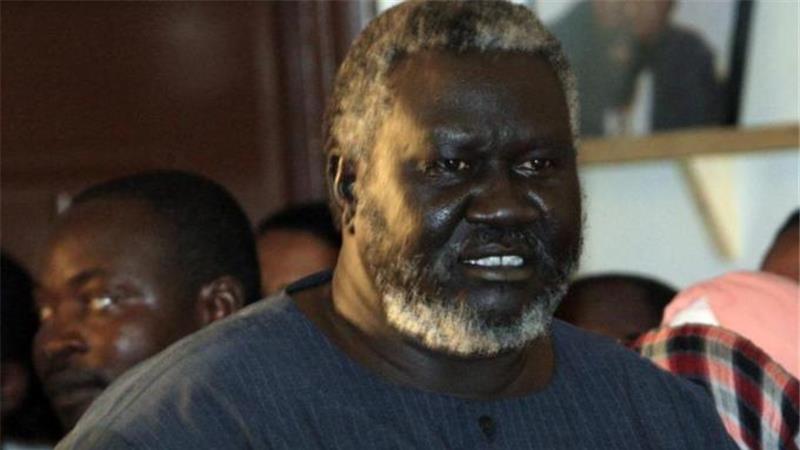London- Leader of Sudan People’s Liberation Army, Malik Agar, confirmed that non-violence represents the core strategy of his movement. A peaceful approach highlights all approaches taken by the Sudanese opposition; however, moving against the government in Sudan is not “optional”.
Agar confirmed that his movement will not sign the document outlining a peaceful solution for Sudan. The document was put forth by the African Peer Review Mechanism (APRM) and signed solely by the government in Sudan.
However, Agar, disregarding any imposed pressures, stated that the opposition will not sign the document which was assembled in Addis Ababa, Capital of Ethiopia.
The Liberation Army leader considered that the document arranged with APRM mediation has violated the African Union, Peace and Security Council (PSC) resolution number 539, which stipulates on inviting both the government and all opposition parties to a preparatory meeting prior to national peace talks.
The document was received by opposition members to be an invitation to surrender.
In his phone interview with Asharq Al-Awsat newspaper, Agar denied any support being provided by the Republic of South Sudan to the Liberation Army.
The Army fights governmental forces alone in regions surrounding the Blue Nile and in South Kordofan, one of Sudan’s 18 provinces, Agar said.
On the document, Agar said “that it is a misguiding attempt to bury their heads in the sand.” He added that the Sudanese government has three thousand informers located in Juba, and is fully aware of the situation there.
Following is a selected set of questions answered by Sudan People’s Liberation Army Malik Agar:
• What is your argument against the document itself (a course outline)?
We support a comprehensive solution which ends war, an all-inclusive national discussion which leaves no one out, and an arrival to a citizenship government in which everyone’s rights are reserved, including the National Congress Party.
We refuse partial solutions -which is why we refuse undertaking any bilateral discussions- or any other crisis-inducing solutions. The opposition already has a course outline, which we signed in Paris and that Thabo Mbeki (former South African President) could use.
• Did you request replacing African Peer Review Mechanism (APRM) President Thabo Mbeki, after the recent crisis, or are you sticking to him?
We haven’t requested a change in APRM presidency; however, we took a look over the issue through social media and other media outlets. Nonetheless the Sudan People’s Liberation Army has not demanded replacing Mbeki. Eventually, Mbeki has to reevaluate his direction in political intermediation, so that he can see the extent of his success and the parts in which he failed.
• The opposition is divided, as some may repeatedly mention. How can you face the government while being divided?
Yes, the opposition comprises diverse parties and movements which have varying views. However, these parties unanimously approve Sudan’s future lying within the framework of democracy, freedom, equality, justice and the end of war. We are at an agreement concerning goals and the language being used is common.
